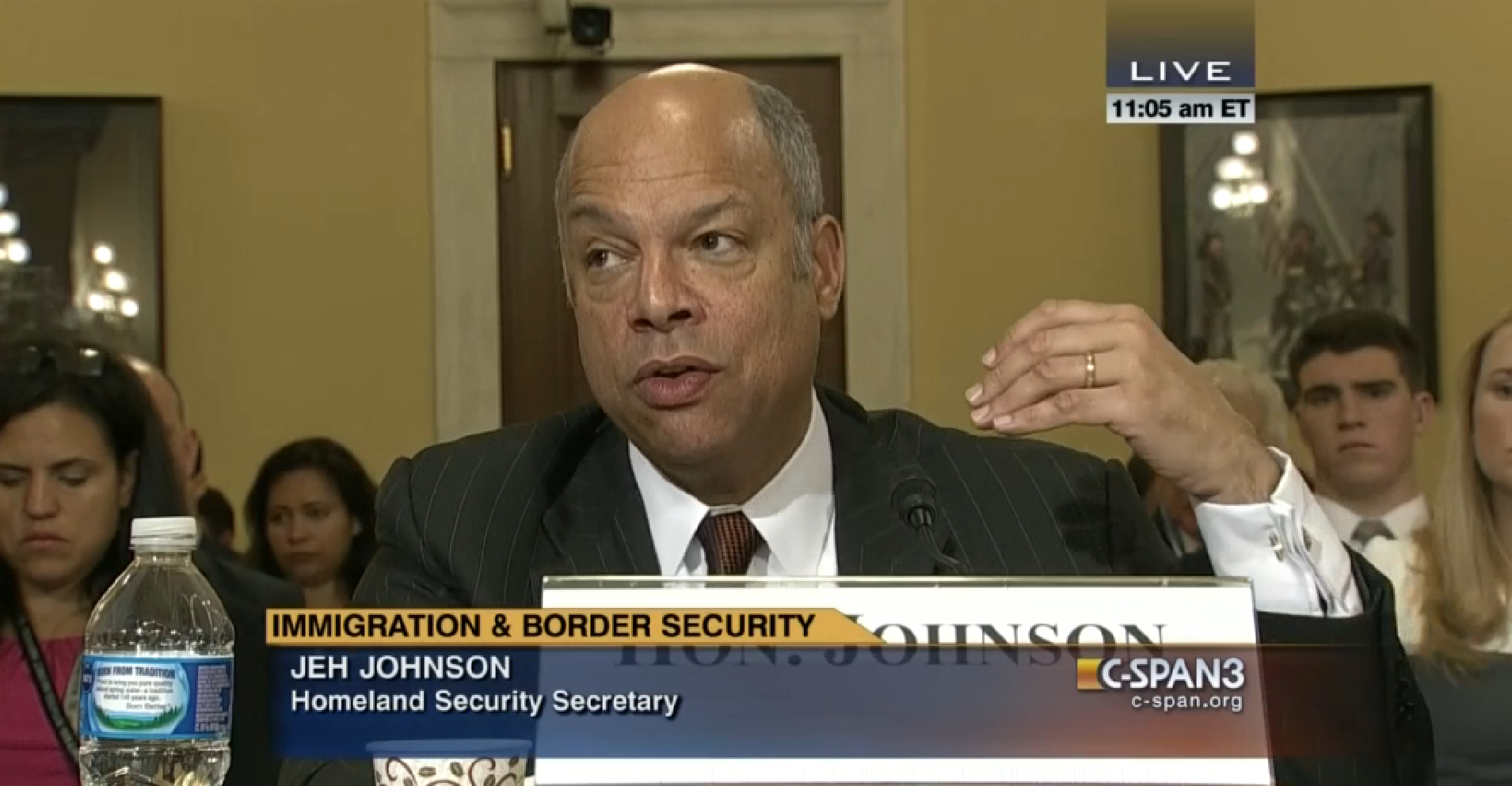On Tuesday, Department of Homeland Security (DHS) Secretary Jeh Johnson testified to the House Judiciary Committee—his first appearance in Congress since the tragic killing of Kate Steinle in San Francisco. Secretary Johnson faced Congressional representatives who repeatedly supported making immigration detainer requests mandatory. Johnson responded by repeatedly emphasizing “cooperation” with local authorities, rather than mandated detention.
Johnson repeatedly stated that the controversial Secure Communities program, which involved ICE issuing detainer requests to local law enforcement agencies to hold immigrants until ICE arrived, wasn’t working. Rather, Secure Communities became “embroiled in political and legal controversy,” in Johnson’s words, and lead to a breakdown in cooperation between local law enforcement and ICE. By 2014, over 250 counties had stopped honoring detainer requests from ICE, citing concerns regarding constitutionality, increased costs to taxpayers, and the desire to foster trust in immigrant communities, so that immigrants were more likely to assist police in solving crimes.
In response, the Administration replaced Secure Communities with its new Priority Enforcement Program (PEP). The program is designed to replace ICE requests for detention with requests for notification by local law enforcement, in situations where an immigrant has committed a crime that meets ICE’s new enforcement priorities. In special circumstances, where ICE still seeks a detainer, it must do so based on probable cause that meets the Fourth Amendment. Johnson called this a “balanced, common-sense approach.”
Secretary Johnson received a barrage of questions from Congressional members that sought to make ICE detainers mandatory, or to “incentivize” local communities to detain immigrants for ICE by withholding their funding. Johnson repeatedly expressed his preference, though, for a “cooperative program,” and said that mandatory detainers would be counter-productive—indeed, a “huge setback” for DHS relations with state and local law enforcement. Johnson added that “we want people to report crime and participate in society.” Rep. John Conyers, the ranking minority member, also stated that “we must make sure we do not adopt policies that would diminish public safety and undermine our commitment to the Constitution and civil liberties.”
Other Congressional members questioned Johnson about DHS’ treatment of Central American asylum seekers. Privately run family detention facilities have come under heavy scrutiny for inhumane conditions including deplorable medical care, and the serious psychological harm to detainees. Although Secretary Johnson had recently announced that ICE would release women and children seeking asylum that pose no public safety threat nor are flight risks, he faced more tough questioning. For example, Representative Ted Deutch raised concerns over the practice of detaining women and children fleeing violence, and stated, “welcoming them through incarcerating them was wrong.” Representative Judy Chu recalled her horror at what she saw in family detention centers. Rep. Zoe Lofgren cited a recent U.S. GAO report discussing inadequate Border Patrol screening of unaccompanied children for persecution and trafficking, and proposed interviews by non-uniformed personnel more skilled with children. And Representative Jerrod Nadler criticized that Border Patrol’s streamlined removal processes result in criminal prosecutions of individuals with valid asylum claims, in violation of international laws.
Ultimately, Johnson concluded his statement by saying, “we must reckon with the estimated 11.3 million undocumented immigrants who are here in this country… These people are here, they live among us, and they are not going away.” Johnson asked for reform, saying:
“In the United States, do we say to a class of people who have lived here for years and are not going away: we know you are here, your family is here, but you are destined to live in this country as a second-class person? Or do we give them an opportunity to earn a better place?”
Photo Courtesy of C-SPAN
FILED UNDER: Department of Homeland Security, featured, Hearings, Jeh Johnson, Sanctuary Cities


